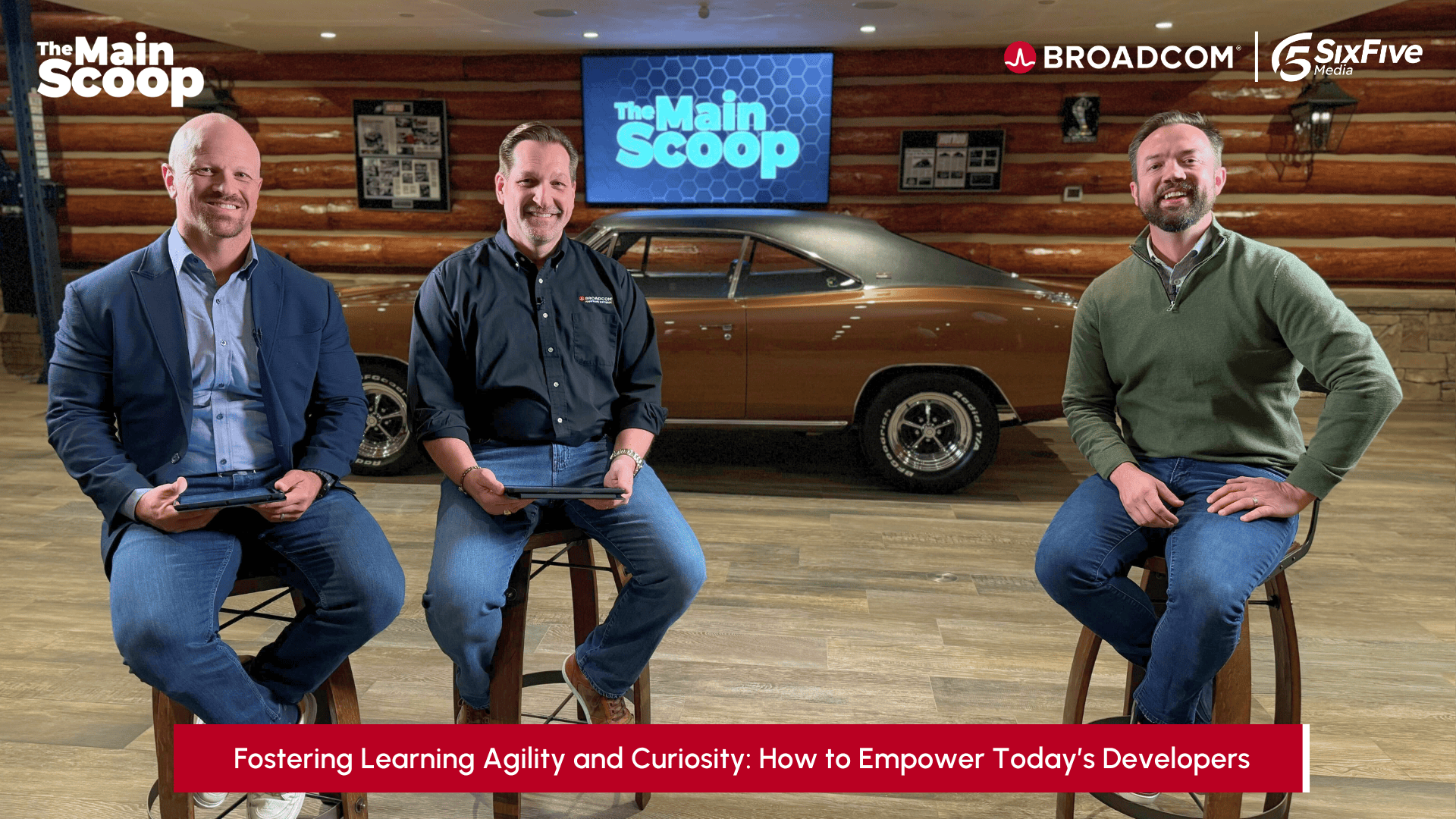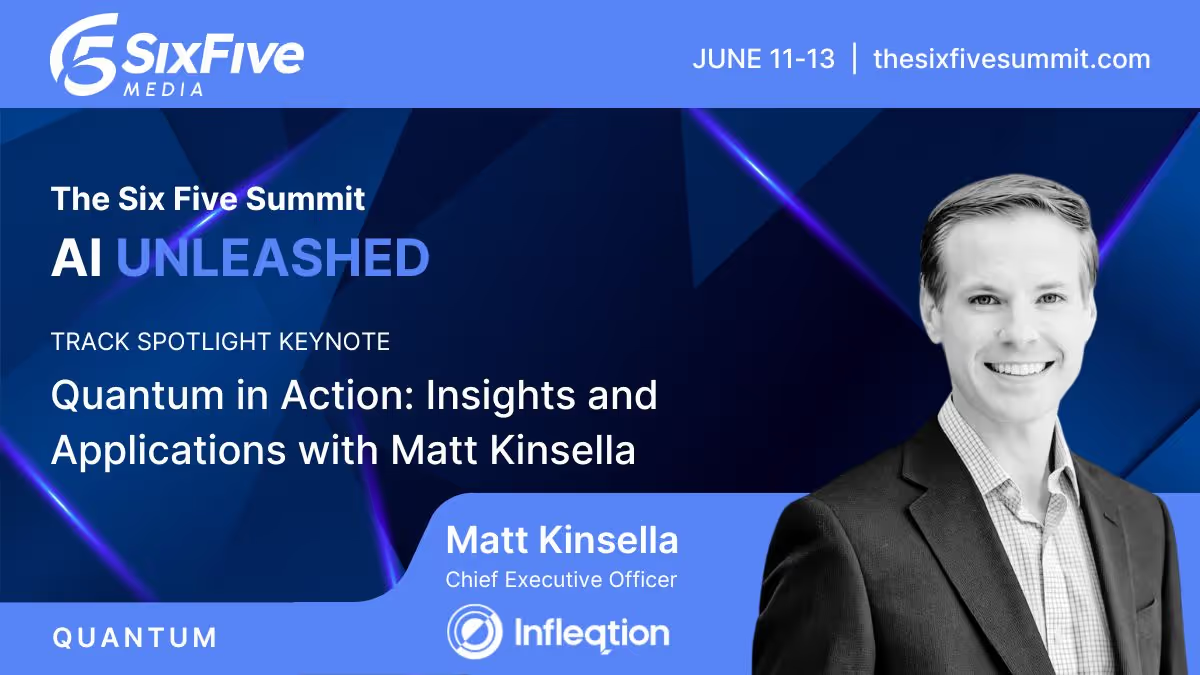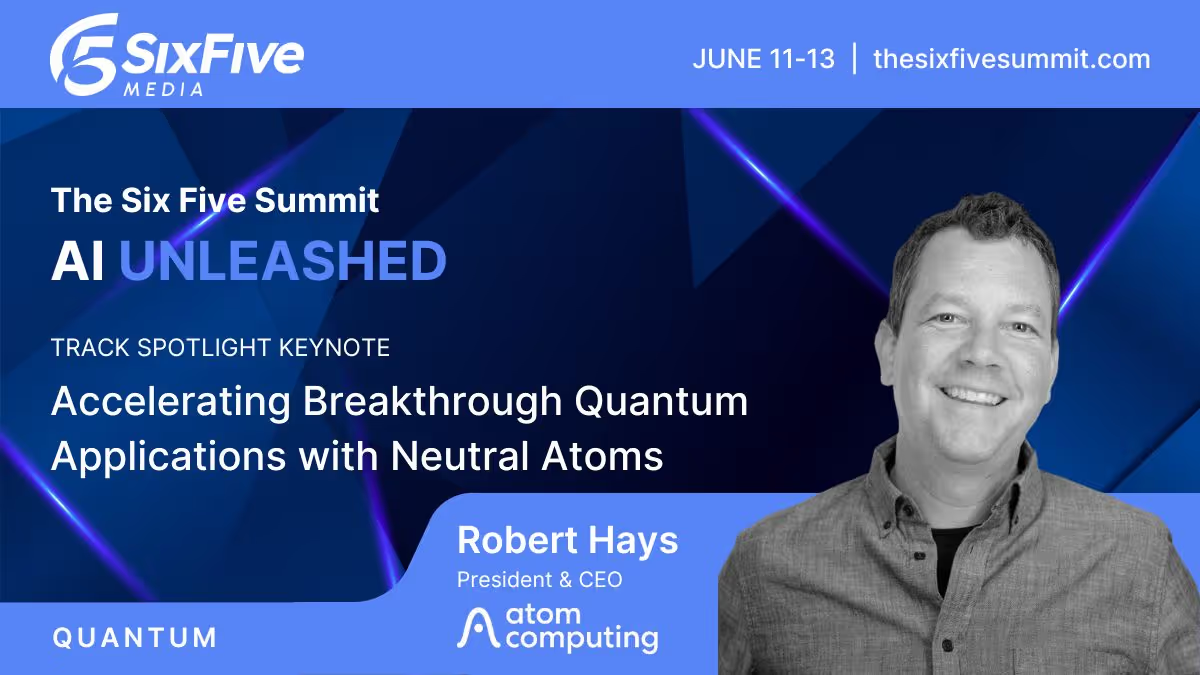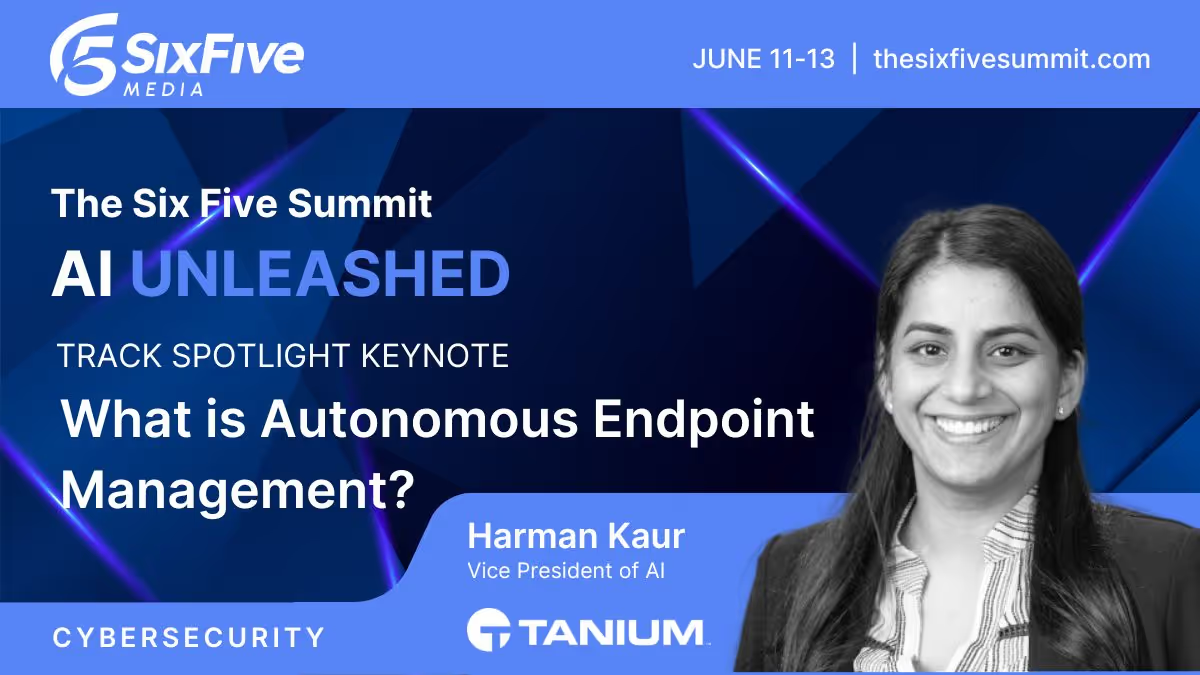Building the Future of Business Laptops with HP and AMD
Bob Rosenberry, Commercial Notebook Product Manager at HP, joins Ryan Shrout to discuss how HP’s collaboration with AMD is shaping business laptops equipped for AI-driven productivity, enterprise security, and emerging work styles.
How are HP and AMD shaping the next generation of business laptops by integrating advanced AI and security features?
Host Ryan Shrout, President & GM of Signal65, is joined by HP's Bob Rosenberry, Commercial Notebook Product Manager, for a conversation on how HP is bringing business laptops into the future through its evolving partnership with AMD and a focus on integrating AI acceleration capabilities. The discussion explores HP’s strategic adoption of AMD Ryzen™ PRO processors, including the latest Ryzen AI offerings, to deliver advanced manageability, security, and AI-driven productivity for enterprise customers.
Key Takeaways Include:
🔹Strategic HP-AMD Collaboration: HP’s growing partnership with AMD enables integration of Ryzen PRO CPUs, combining high performance with enterprise-grade manageability and security.
🔹AI-Driven Productivity: New HP business laptops leverage Ryzen AI processors for enhanced workloads, including on-device inferencing, webcam features, and background noise suppression.
🔹Enterprise-Class Features: Alignment between AMD’s multi-core efficiency and HP’s robust build/software ecosystem delivers security, battery life, and collaboration tools businesses need.
🔹Future-Ready Commercial Portfolio: HP is committed to supporting emerging workloads through rapid innovation, ensuring business users are equipped for real-time collaboration and AI-assisted tasks.
Download the whitepaper here: https://signal65.com/building-the-future-of-business-laptops-with-hp-and-amd/
Watch the full video at sixfivemedia.com, and be sure to subscribe to our YouTube channel, so you never miss an episode.
Or listen to the audio here:
Disclaimer: Signal65 is for information and entertainment purposes only. Over the course of this webcast, we may talk about companies that are publicly traded, and we may even reference that fact and their equity share price, but please do not take anything that we say as a recommendation about what you should do with your investment dollars. We are not investment advisors, and we ask that you do not treat us as such.
Ryan Shrout: Hey Everybody, welcome to Signal 65 Video Insights. I'm President at Signal 65, Ryan Shrout and I'm joined by a good friend of mine, Bob Rosenberry, who is a commercial laptop product manager from hp. Bob, thanks for joining us. It's good to have you here. You know what we want to talk about today is we've recently, you know, we've worked with HP on quite a few different reports. We recently published one looking at AMD powered next gen AI PCs and kind of comparing how you know, a couple, you know, generation ago, a couple of generations ago, how the performance profile has changed, how the experiences have changed and how the capabilities of these devices have really shifted how businesses and consumers utilize their devices. I, I want to really start though by talking about how you view and HP views enterprises adopting AI. I think it's been one of the big questions in the market in general. Right now we've got these capabilities. Some of the big names in the industry are talking about AI PCs and Copilot plus and all these different, no nomenclatures but how are you seeing these technologies adopted?
Bob Rosenberry: So a lot of the enterprise customers we talk to, they're telling us they want their users to benefit from the productivity gains offered by these tools but they're really concerned about the speed and the cost of cloud based solutions and a lot of concern around security and compliance, especially in regulated industries. So these needs point to really a business imperative to start adopting on-device AI for the ability to make those real time decisions with the peace of mind that company secrets aren't being used to train public models which is really important. But to support these AI workflows, new hardware is needed and it's hardware that's built specifically to handle AI workloads on the device with new processor architectures.
Ryan Shrout: Yeah, so that's new processor architectures, new devices that integrate those. But I'm curious, what types of applications are these organizations actually using? And from what your research is showing.
Bob Rosenberry: Today, and I think the biggest thing we're seeing of course is the Microsoft Copilot plus features like live translation and co creation. So these are really powerful features for business users but they have a minimum hardware requirement that only next generation PCs can meet. So we're also talking to forward thinking enterprises that are bringing their own tools. Well, they're making their own tools based on local large language models. They're trained on internal data. So for example in healthcare patient data is highly confidential, subject to strict regulation, so they want to keep that local. And finance is another area with similar needs. So these organizations are piloting tools that provide, you know, fast and secure analysis and recommendations to provide automated responses. So another thing we're seeing is this flood of innovative AI applications hitting the market that use local AI to give workers what we like to call superpowers for things like video content creation, virtual coaching, virtual agents, and new security applications like deep fake detection. So all of these require more advanced personal computing platforms.
Ryan Shrout: It's interesting you bring up healthcare as well. I was recently at a doctor's appointment and there was a, a new sign on the door that I hadn't seen about them using ambient note taking, which, you know, I didn't dive a whole bunch into, but I assume is using AI for listening to conversations and helping those doctors and nurses take notes. So really interesting integrations that we're continuing to see. So tell.
Bob Rosenberry: The same thing happened to me too. Yeah, it's one healthcare customer we talked to recently wanted to do. They wanted to do a first diagnosis based on patient data. So they wanted AI to actually start the diagnosis process, but they had to load up a lot of confidential patient data in local models to make that happen.
Ryan Shrout: It's really interesting. It's going to change everything, there's no doubt. So tell me a little bit about these new PCs, the processor architectures and what kind of the different IP inside of them that is important to this process.
Bob Rosenberry: There's an overview of how the new processor architectures work. And I know a lot of people talk about CPUs, NPU's, GPUs, and maybe do not know the role that each of them play. There are four, there are four dedicated AI engines that work together to enable the most robust AI workloads and sending. You need to send the right task to the right engine at the right time. So the CPU is the main chip that performs the sequential operations and executes instructions. So you know, everyday productivity tasks, the software you use. Every day, low latency AI workloads are processed on the cpu. The NPU is something new and there's kind of a lot of buzz around it. Right. But the NPU is a dedicated low power AI engine that's integrated into the CPU package and it's ideal for sustained tasks that mostly run in the background like security monitoring or video effects during calls. Everyone's familiar with using background blur and things like that. So when you use the NPU, your system consumes less power and the CPU and GPU are freed up to run other tasks and you're getting better battery life for when those mundane tasks are running. On the NPU. And then integrated GPUs are specialized chips that are integrated into the CPU that perform the parallel computations for AI graphics and other really data intensive tasks. Those GPUs provide the power to process AI workflows, but they consume more, more energy. And then finally you have discrete GPUs that are separate devices with their own memory and power supply. These can really greatly increase the AI processing power typically used in things like workstations and servers. A lot of times for AI tool development, not as like an end user consumer of AI. They're used by developers that are developing AI applications. The discrete GPU offers the most performance and flexibility since it doesn't share any resources with the cpu. But it's a, it's a very, it's a very power hungry device as well.
Ryan Shrout: Yeah, so it's more for very kind of compute intensive AI workloads that are bursty if you know, you don't want to worry about battery drain and things like that. It's interesting, right, Because a lot of the testing that we did. So at signal65, you go to signal65.com and go into our research section, you'll see the report that we did in partnership with HP, kind of looking at these next generation AI PCs powered by different AMD processors. And we saw a lot of data that backs up up what you're saying. Right. We looked at some performance of the Phi 3 mini instruct model, which is an LLM of a small one as the Mini indicates. Right. Running on through the AMD Gaia, which is their framework to help accelerate LLMs on the NPU. And it was going from an EliteBook 865 G10 to an EliteBook 8 G1A. Right. Which is the newest generation powered by the Ryzen AI Pro processors saw more than a three times improvement in performance. Right. In terms of your tokens per second throughput. And that just means you're going to be able to get more performance, more capabilities and more usability out of those exact same workloads if you upgrade the platforms. Interestingly, we've also saw several different areas where something wasn't even able to run on the previous generation products because maybe the model was too big or computer too complex. For example, we showed running the deep seq R1 distill version with a llama 8B base in the same application, another LLM getting, you know, 14 to 16 tokens per second on the new Ryzen AI platforms, but it was unable to run on the previous generation. Right. So Big, big advantages to be seen in terms of pure AI performance when you talk about efficiency. Right. We looked at, you know, the very common example that you talked about, kind of a background blur using the studio effects features in a teams call and found that the newer platforms offered the same or better, you know, up to 12% better performance when doing multitasking workloads, say a teams call + office productivity applications at the same time. So you're getting better performance while running at, you know, up to 50% lower power consumption for the same workloads. Right? That's going to translate into longer battery life, it's going to translate into a cooler system, a quieter system, all of those, those tangible benefits that really come through with it. And then one of the more interesting kind of, I would call it a forward looking kind of AI use case this AI image generation. We use the amd, you know, kind of promoted amuse AI tool with an SDXL Turbo model and you're to, to run it at 67, up to almost 70% lower power to create these images. Right. So if you're building PowerPoint presentations or any other kind of marketing content and you, you want to use the power of AI to help accelerate and improve that process, you're going to do it much more efficiently. With the latest generation of, of AMD processors. It's, it's really impressive to see what they've been able to do from a performance perspective.
Bob Rosenberry: There's, we did a similar test where we used the Amuse tool and we had it generate, over, generate an image over and over and over again until the battery died. No one would do that in real life, but we just want to, we tried it with the gpu then we tried it with the NPU. And the NPU, the battery lasted more than two and a half times longer than when we use the gpu. So it really shows the efficiency gains that you get using that NPU.
Ryan Shrout: Yeah, I think it's very compelling. We've been talking about AI PCs for a while. You and I have been talking about AI PCs for a while now. But it does feel like we're at this threshold now where the applications, the use cases, the performance and efficiency and kind of software I'll call it maturity is at a point where we're seeing real tangible benefits across a bunch of different consumer workloads. So I'm excited to see how HP and these systems are going to kind of continue to improve and change. It brings me to my last question for you, right is I always want to ask my guests kind of what, what's coming next? Or, or what's a forward looking view of things, right? If, if you look towards further advancements in the commercial AI PC space, where do you think this is going? Like what's the next step? And, and, and what do you think is the most important way for us to look at this going forward?
Bob Rosenberry: I think you just touched on one thing, is that software will increasingly be re-engineered to tap into these, these new AI engines and these tools because now there's so much power that's coming to the endpoint that why not use it? Because you know, data centers are pretty expensive, right? So things, things moving, you know, more from the cloud to the edge for efficiency reasons but also for, you know, cost reasons. And, as I mentioned earlier, you've got the, the security and the, and the regulatory restrictions that are over a lot of industries that are going to drive this. So you know, we're prepared to just keep making more and more powerful laptops for people to do to get more superpowers like we call them. And you know, the future looks great.
Ryan Shrout: And of course, obviously make sure everybody goes to signal65.com and go to the research section and look up this report on our HP EliteBook 8G 1A testing. It's got a lot of, a lot more information and data and performance results in it. We look at all the HP software like Polycam Studio that's in there. It's really good stuff, all powered by that AMD Ryzen AI next generation processor. So Bob, thank you for joining us here. It's been great to talk to you.
Bob Rosenberry: Thanks, it was my pleasure.
Ryan Shrout: And for everybody else, thanks for watching and we'll see you in the next video.
MORE VIDEOS

The View from Davos with Wedbush’s Daniel Ives
Daniel Ives of Wedbush Securities joins Daniel Newman from Davos to discuss why AI adoption is entering a monetization phase, how enterprise software and modernization are driving ROI, and why the current cycle looks more like the early stages of a long-term buildout than a speculative bubble.

The View from Davos with Check Point CEO Nadav Zafrir
From Davos, Check Point CEO Nadav Zafrir joins Daniel Newman to discuss why cybersecurity has become a foundational requirement for AI transformation, and how prevention-first strategies and AI-powered defense are essential as agents move into real-world systems.

The Main Scoop Episode 39: Fostering Learning Agility and Curiosity - How to Empower Today’s Developers
Brent Foster, VP and Engineering Practice Owner at TD Bank, joins The Main Scoop hosts to discuss developer empowerment through generative AI, the modernization of mainframes, and building strong technical career paths in evolving enterprise IT.
Other Categories
CYBERSECURITY

Threat Intelligence: Insights on Cybersecurity from Secureworks
Alex Rose from Secureworks joins Shira Rubinoff on the Cybersphere to share his insights on the critical role of threat intelligence in modern cybersecurity efforts, underscoring the importance of proactive, intelligence-driven defense mechanisms.
QUANTUM

Quantum in Action: Insights and Applications with Matt Kinsella
Quantum is no longer a technology of the future; the quantum opportunity is here now. During this keynote conversation, Infleqtion CEO, Matt Kinsella will explore the latest quantum developments and how organizations can best leverage quantum to their advantage.

Accelerating Breakthrough Quantum Applications with Neutral Atoms
Our planet needs major breakthroughs for a more sustainable future and quantum computing promises to provide a path to new solutions in a variety of industry segments. This talk will explore what it takes for quantum computers to be able to solve these significant computational challenges, and will show that the timeline to addressing valuable applications may be sooner than previously thought.




